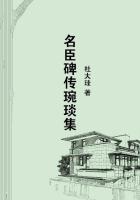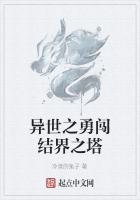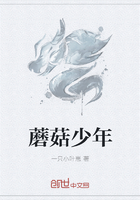If the reasoning by which her friends justified her course was somewhat cruder and less complex than her own elucidation of the matter, both explanations led to the same conclusion: John Arment was impossible.The only difference was that, to his wife, his impossibility was something deeper than a social disqualification.She had once said, in ironical defence of her marriage, that it had at least preserved her from the necessity of sitting next to him at dinner; but she had not then realized at what cost the immunity was purchased.John Arment was impossible; but the sting of his impossibility lay in the fact that he made it impossible for those about him to be other than himself.By an unconscious process of elimination he had excluded from the world everything of which he did not feel a personal need: had become, as it were, a climate in which only his own requirements survived.This might seem to imply a deliberate selfishness; but there was nothing deliberate about Arment.He was as instinctive as an animal or a child.It was this childish element in his nature which sometimes for a moment unsettled his wife's estimate of him.Was it possible that he was simply undeveloped, that he had delayed, somewhat longer than is usual, the laborious process of growing up? He had the kind of sporadic shrewdness which causes it to be said of a dull man that he is "no fool"; and it was this quality that his wife found most trying.Even to the naturalist it is annoying to have his deductionsdisturbed by some unforeseen aberrancy of form or function; and how much more so to the wife whose estimate of herself is inevitably bound up with her judgment of her husband!
Arment's shrewdness did not, indeed, imply any latent intellectual power; it suggested, rather, potentialities of feeling, of suffering, perhaps, in a blind rudimentary way, on which Julia's sensibilities naturally declined to linger.She so fully understood her own reasons for leaving him that she disliked to think they were not as comprehensible to her husband.She was haunted, in her analytic moments, by the look of perplexity, too inarticulate for words, with which he had acquiesced to her explanations.
These moments were rare with her, however.Her marriage had been too concrete a misery to be surveyed philosophically.If she had been unhappy for complex reasons, the unhappiness was as real as though it had been uncomplicated.Soul is more bruisable than flesh, and Julia was wounded in every fibre of her spirit.Her husband's personality seemed to be closing gradually in on her, obscuring the sky and cutting off the air, till she felt herself shut up among the decaying bodies of her starved hopes.A sense of having been decoyed by some world-old conspiracy into this bondage of body and soul filled her with despair.If marriage was the slow life-long acquittal of a debt contracted in ignorance, then marriage was a crime against human nature.She, for one, would have no share in maintaining the pretence of which she had been a victim: the pretence that a man and a woman, forced into the narrowest of personal relations, must remain there till the end, though they may have outgrown the span of each other's natures as the mature tree outgrows the iron brace about the sapling.
It was in the first heat of her moral indignation that she had met Clement Westall.She had seen at once that he was "interested," and had fought off the discovery, dreading any influence that should draw her back into the bondage of conventional relations.To ward off the peril she had, with an almost crude precipitancy, revealed her opinions to him.To her surprise, she found that he shared them.She was attracted by the frankness of a suitor who, while pressing his suit, admitted that he did not believe inmarriage.Her worst audacities did not seem to surprise him: he had thought out all that she had felt, and they had reached the same conclusion.People grew at varying rates, and the yoke that was an easy fit for the one might soon become galling to the other.That was what divorce was for: the readjustment of personal relations.As soon as their necessarily transitive nature was recognized they would gain in dignity as well as in harmony.There would be no farther need of the ignoble concessions and connivances, the perpetual sacrifice of personal delicacy and moral pride, by means of which imperfect marriages were now held together.Each partner to the contract would be on his mettle, forced to live up to the highest standard of self-development, on pain of losing the other's respect and affection.The low nature could no longer drag the higher down, but must struggle to rise, or remain alone on its inferior level.The only necessary condition to a harmonious marriage was a frank recognition of this truth, and a solemn agreement between the contracting parties to keep faith with themselves, and not to live together for a moment after complete accord had ceased to exist between them.The new *****ery was unfaithfulness to self.
It was, as Westall had just reminded her, on this understanding that they had married.The ceremony was an unimportant concession to social prejudice: now that the door of divorce stood open, no marriage need be an imprisonment, and the contract therefore no longer involved any diminution of self-respect.The nature of their attachment placed them so far beyond the reach of such contingencies that it was easy to discuss them with an open mind; and Julia's sense of security made her dwell with a tender insistence on Westall's promise to claim his release when he should cease to love her.The exchange of these vows seemed to make them, in a sense, champions of the new law, pioneers in the forbidden realm of individual *******: they felt that they had somehow achieved beatitude without martyrdom.















